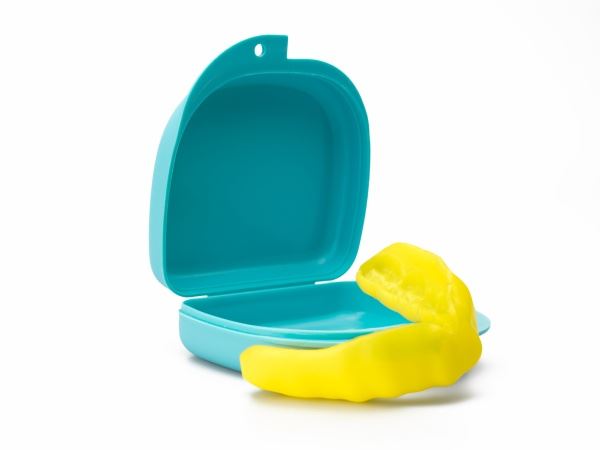 Wondering why your dentist recommended a mouth guard during your last dental checkup? This article will go over some of the reasons a dentist might think you need one. Having to get used to wearing a new dental device can be a bit annoying, but these appliances help to protect teeth from forces that can damage them.
Wondering why your dentist recommended a mouth guard during your last dental checkup? This article will go over some of the reasons a dentist might think you need one. Having to get used to wearing a new dental device can be a bit annoying, but these appliances help to protect teeth from forces that can damage them.
The Different Types of Mouth Guards
The term "mouth guard" is often used to refer to different types of oral appliances with different functions. Some are designed to help with disorders like sleep apnea, while others can protect from trauma that can occur during contact sports.
The main types of mouth guard a patient might need include:
1. Sports guards
These are used to protect people from hard contact that occurs during sports or other physical activities where a hard hit to the mouth is a possibility. It protects teeth from getting damaged by forces that impact the face, and it protects the jaw, face and head from injuries as well. A sports guard also reduces the risk of suffering a cut lip or other types of soft tissue damage. These devices are so effective that many sports sanctioning bodies make them a compulsory part of athletic gear.
2. Night guards
These are worn by patients when they go to bed to protect teeth from the forces created when grinding. It minimizes the damage done by tooth grinding, which typically occurs at night while a person sleeps. Some night guards restrict the movement of the lower jaw, while others only cover the top teeth.
3. Sleep apnea oral devices
These are not really mouth guards, but they are often classified as such since they are worn on teeth just like a mouth guard is. They help to hold the wearer's airways open during sleep. These appliances are used to treat patients who have obstructive sleep apnea.
Why your dentist recommends a mouth guard
There are many mental and health benefits patients derive from wearing a mouth guard. Mouth guards protect against broken teeth, a cut tongue and cut lips during athletic contests.
They can alleviate the symptoms of tooth grinding. The wearer feels better in the mornings, and it prevents complications associated with bruxism from occurring. Problems teeth grinding can lead to include:
- Earaches
- Headaches
- Restricted motion of the jaw
- Limited quality sleep
- Loose teeth
- Grinding sounds waking everyone else up
- Worn down teeth
- Swollen, receding gums
- Problems with the temporomandibular joints
Mouth guards also help with sleep apnea, and they can keep the tongue and jaw properly positioned while a person sleeps, preventing interruptions to their sleep due to sleep apnea.
Get a Customized Mouth Guard
In order to get the most out of a mouth guard, it should be customized to fit the unique alignment of your teeth. This ensures it fits properly when being worn, making it more comfortable and more effective. Stop by our Exton clinic if you play sports, grind your teeth or have sleep apnea. We will craft a custom guard that will protect your teeth and improve your overall health.
Request an appointment or call Integrated Dental Care at (610) 600-9745 for an appointment in our Exton office.


